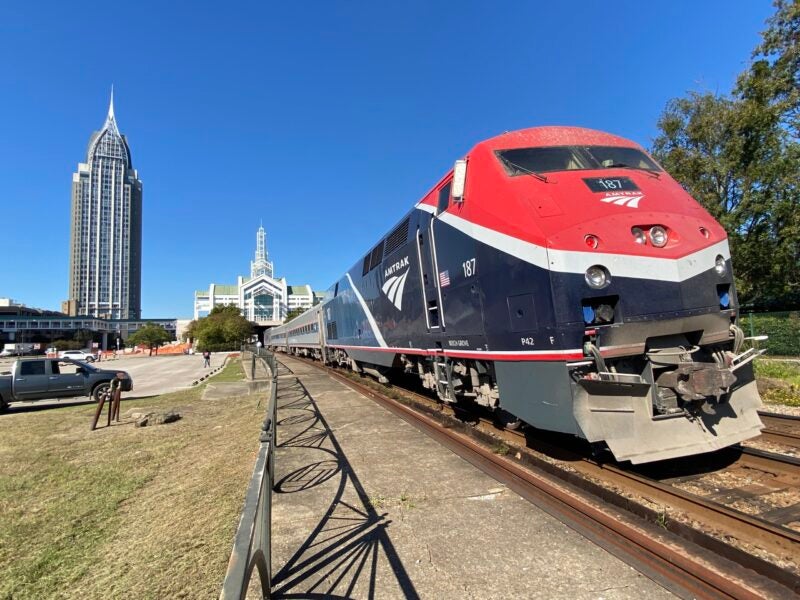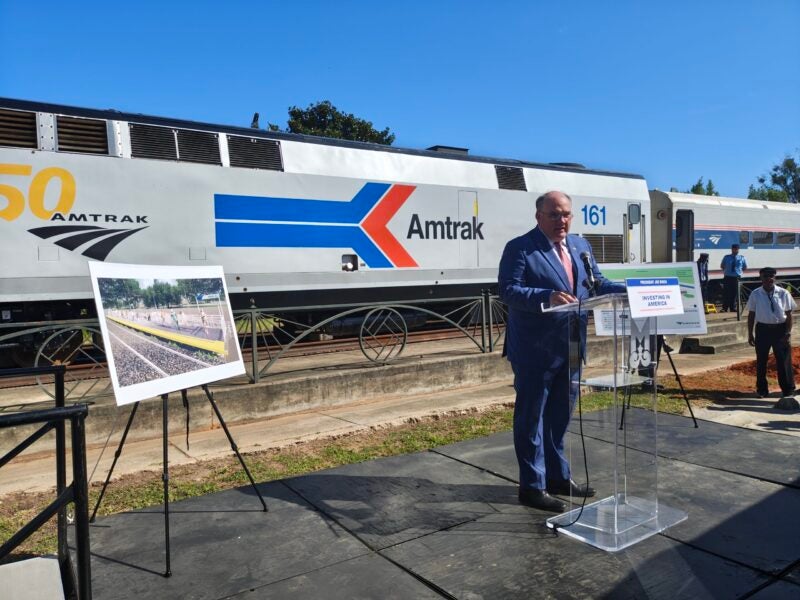
A team of Freeman School MBA students worked with the Southern Rail Commission to estimate usage of the new Mardi Gras Service.
On Aug. 18, Amtrak officially debuted its new Mardi Gras Service between New Orleans and Mobile, Alabama, returning passenger rail service to the Gulf Coast for the first time in nearly 20 years.
The launch was especially gratifying to a team of Freeman School MBA students, who worked with the Southern Rail Commission last year to help gauge demand for the new service.
“It was a pretty interesting project,” said Harrison Bond (MBA ’25), one of the five Freeman MBAs who worked on the report. “There were some marketing aspects to it and some modeling aspects to it, but basically our project was to estimate what the usage rate of this new service is going to be.”
Created by Congress in 1982, the Southern Rail Commission engages public and private rail interests to support rail initiatives in the Southeast. Restarting passenger rail service between New Orleans and Mobile — which Amtrak suspended in the wake of Hurricane Katrina in 2005 — has been one of the commission’s biggest recent projects. The twice-daily service, which includes stops in Bay St. Louis, Pascagoula, Gulfport and Biloxi, is expected to spur economic activity and enhance connectivity between cities and coastal towns, necessitating public improvements along the route. Amtrak had estimates of expected ridership, but the Southern Rail Commission sought its own independent research to better inform cities along the route of expected impacts.
Working with Mark Ratchford, professor of practice in marketing, the MBA team, which also included Samantha Rubin (MBA ’25), Shafi Munir (MBA ’25), Kara Schiek (MBA ’25) and Sarah Adofo (MBA ’25), provided the commission with a comprehensive report detailing passenger demographics and preferences. The report included customer profiles, a demand model and detailed recommendations based on their findings.
One of the students’ key findings was that the service is more likely to be used for tourism than regular transportation.
“This is not a train that people are going to be riding daily,” said Rubin. “We had one group of commuters that might be riding the train weekly, but most of our other demand was a lot less frequent and a lot harder to predict.”
“We don’t expect many people to ride the full length from New Orleans to Mobile,” added Bond. “The service is going to make it easier for people to go to and from New Orleans — for people from Mobile, for instance, to head over to the casinos for a weekend. We think it’ll be used more for short bursts.”
Southern Rail Commission Chairman Knox Ross, who served as the students’ point of contact, said he was pleased with the team’s findings.

Knox Ross, chairman of the Southern Rail Commission, speaks in Mobile, Alabama, at the groundbreaking ceremony for the Gulf Coast Rail Corridor Improvement Project.
“It was an honor to work with the highly motivated students at the Tulane Freeman School,” Ross said. “They were able to identify specific groups of customers and their preferences that will help us implement a more successful service. We are very pleased with our partnership with Tulane and hope to do it again.”
With the launch of the new service, the students’ work will help shape the future of passenger rail service in the South.
“I think that was the most meaningful part of it,” said Rubin. “Knowing that the new rail service is going to have such a positive impact on New Orleans made it a really cool experience.”

